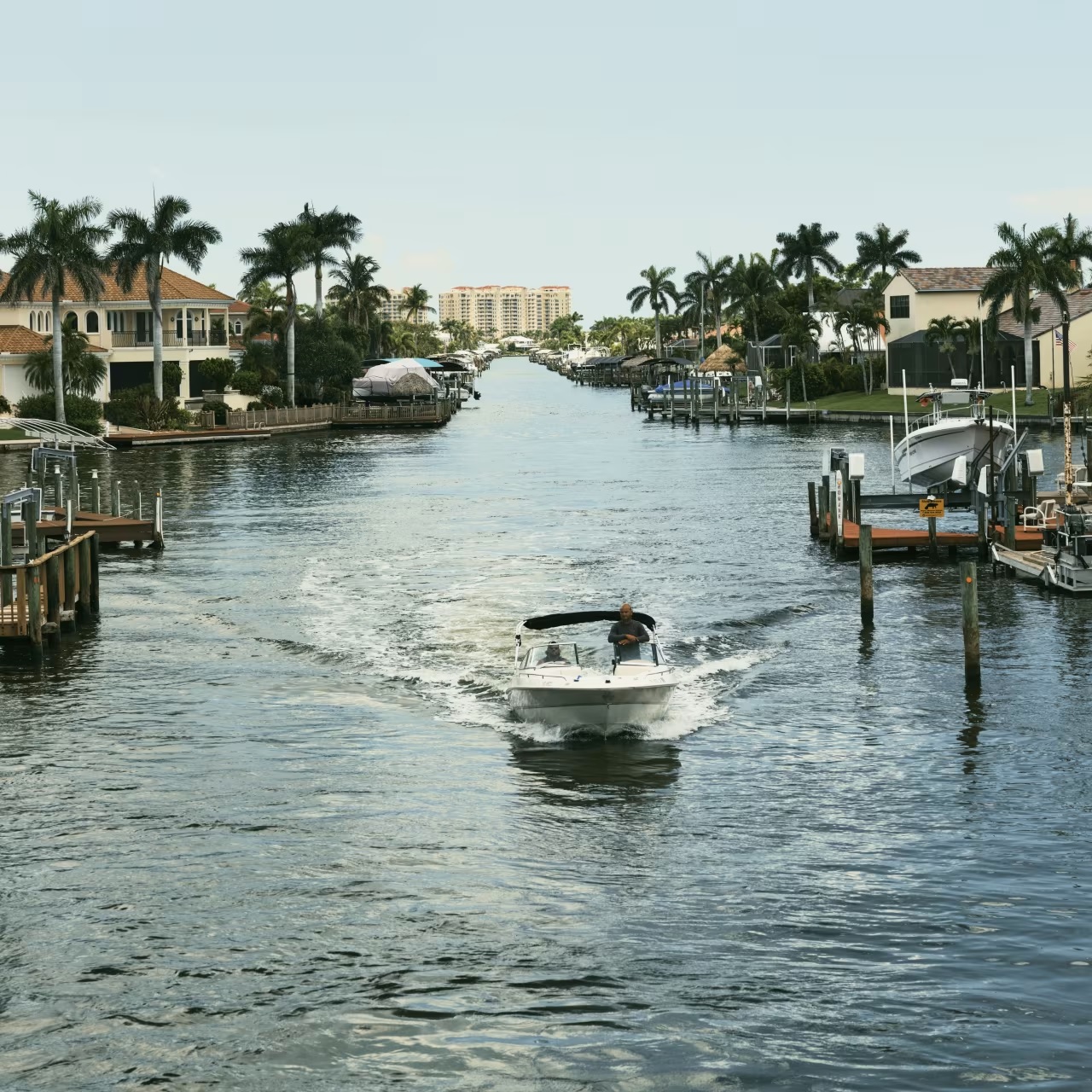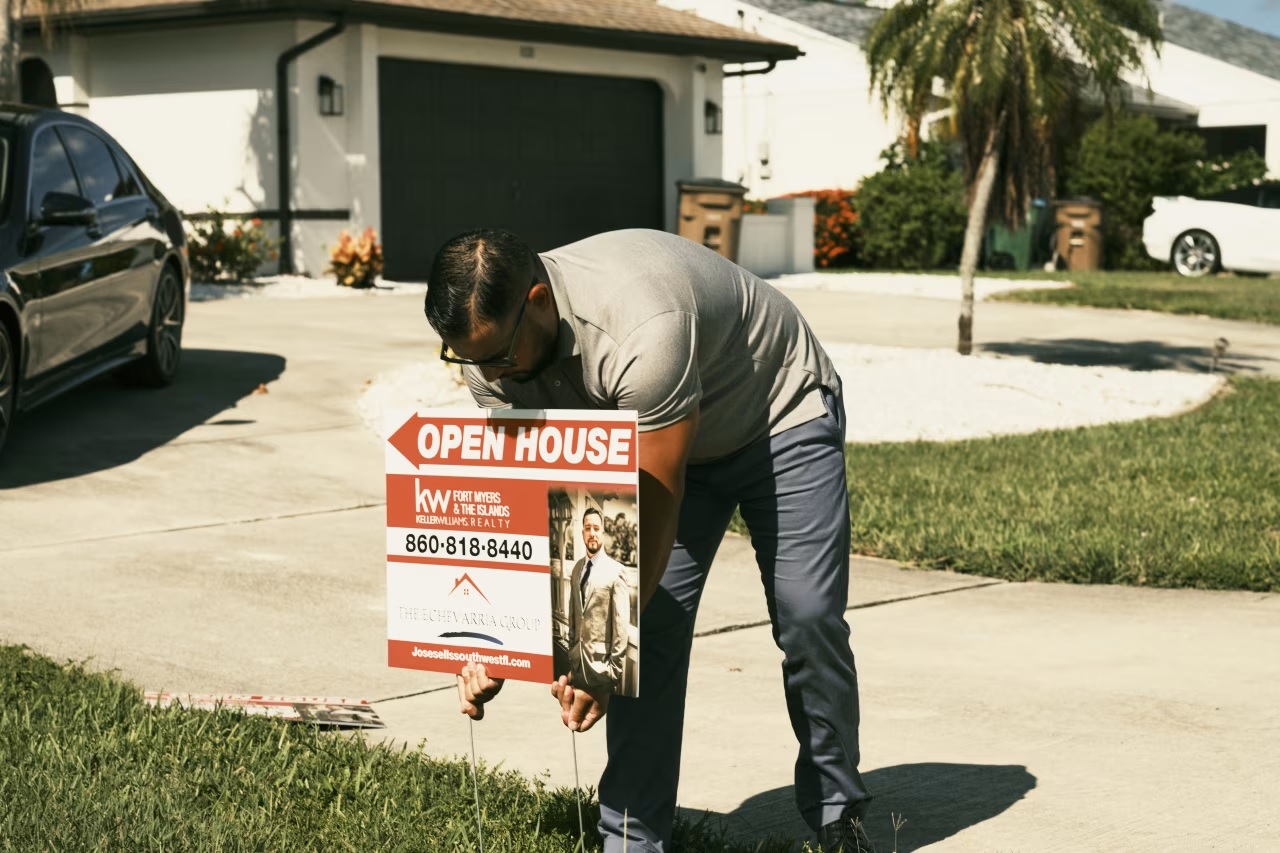During the early years of the Covid-19 pandemic, thousands flocked to Cape Coral, a city with more canals than anywhere else in the world. Many were so captivated by this "paradise" on Florida's west coast that they purchased properties without hesitation.
The median home price in the coastal city surged nearly 75% to 419,000 USD in three years, transforming an area that had catered to retirees and small investors for decades.
Now, three years later, the picture is starkly different: "for sale" signs line the streets. Many construction companies are offering unfinished houses at steep discounts, abandoning projects to cut their losses.
"Cape Coral is the worst housing market in the US right now. I don't think we've hit bottom," said Jose Echevarria, a real estate broker.
Home prices in the Cape Coral and Fort Myers area fell 11% in the two years leading up to May, the largest decline among major metropolitan areas, according to a Wall Street Journal (WSJ) analysis. Home prices in the area have fallen for 12 of the past 13 months, and 52% of homes have had their prices reduced, according to real estate data analytics firm Parcl Labs.
Cape Coral also has one of the highest rates of underwater homeowners in the country, with nearly 8% owing more than their homes are worth.
 |
A view of Cape Coral, Florida. Photo: WSJ |
A view of Cape Coral, Florida. Photo: WSJ
Echevarria recently held an open house for a property he's selling in Cape Coral. The fully furnished house, with a pool, was bought by an investor three years ago for use as an Airbnb rental. Initially listed at 675,000 USD, the owner has dropped the price to below 500,000 USD—about 100,000 USD less than the purchase price.
It has been on the market for a year without any offers. "We expect to lower the price further," Echevarria said.
Cape Coral, a metropolitan area with about 800,000 residents, has been hit by a combination of factors: previously inflated home prices, soaring insurance costs and property taxes, natural disasters, and declining investor demand. At the peak of Florida's migration boom, Lee County, where Cape Coral is located, had 3,500 homes for sale. Now, that number is 12,000.
"With so much inventory and over 50% of sellers reducing prices while demand is minimal, I anticipate the downward trend in home prices to continue," said Jason Lewris, co-founder of Parcl Labs.
Julie and Tim Gaines live in one of Cape Coral's most desirable neighborhoods. They never imagined selling their home would be so difficult. They've lowered the price 15 times, but after two years, they haven't found a buyer.
"I just hope if we do finally sell, it’s not going to be so low that we’re going to be upside down on our mortgage," Julie Gaines said.
 |
A man installs a for sale sign in Cape Coral, Florida. Photo: WSJ |
A man installs a for sale sign in Cape Coral, Florida. Photo: WSJ
There are several reasons for Cape Coral's decline in popularity. Florida's west coast has been hit by hurricanes every year since 2022, flooding many homes. Insurance rates have climbed as several insurance companies have left the state.
At the same time, new state regulations following the 2021 collapse of a condo building in Miami, which killed 98 people, have dealt a blow to the market. Many owners are selling their condos because they can't afford the six-figure inspection fees.
"There are no job opportunities here," said Sherri Sprinkle, who relocated from Chicago to Cape Coral in 2022 for her job. She was laid off last year.
Sprinkle recently opened a makeup studio but is struggling to find clients during the off-season. "The pay here doesn’t match the cost of living. It's paradise but there are no jobs. Everyone is looking for work," she said.
Many investors are also pulling out. Some had been renting out their properties, but now face competition from less expensive developments. The city's Airbnb rentals have seen less interest as Americans have begun traveling abroad more.
Echevarria's aunt recently sold a house, accepting a 200,000 USD loss. "It's either keep losing 49,000 USD a year, or sell it and get the tax write-off for the loss," Echevarria said.
Keith Brochu, who moved from New Jersey, is also switching careers, from construction to running a salad restaurant. He's selling his house near the bay to move further inland.
"Property taxes and flood insurance are going to go through the roof in the next five years, making it too expensive to stay here," he said.
Thuy Lam (According to WSJ)












